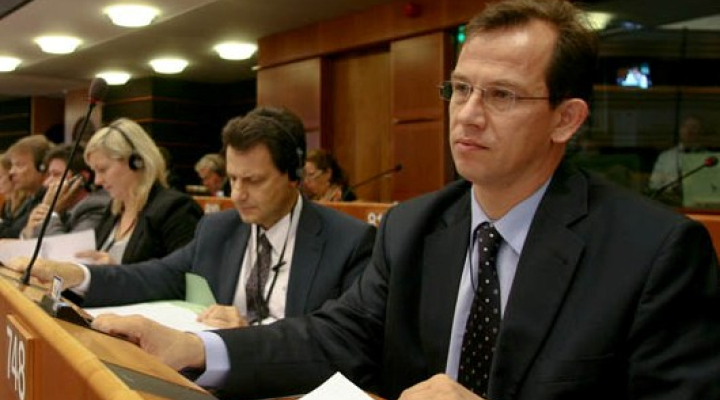The new EU directive strengthens patients' rights in cross-border healthcare
This year’s first plenary session of the European Parliament in January saw the adoption, with amendments, by MEPs of the Council position on the Patients' rights in cross-border healthcare directive. The work on the document began in 2005 and with the coming into force of the Lisbon Treaty; it is the subject of joint decision by the EP and the Council.
The directive enables EU citizens to receive medical care outside their home country, but condemns health care tourism. Contrary to popular belief, the directive does not endanger the national healthcare and social systems, these remain under the authority of the member states. After the coming into force of the directive, the quantum of the refunds will be defined according to the regulations of the patient’s home country’s health care system and member states will decide the kind of services made available to foreign patients.
In case of special treatments or hospitalization with duration of more than one night, prior special approval may be asked for the awarding of the refunds by the managing authorities, but the request for approval can only be denied in case of lack of criteria or special conditions. Each foreign request for treatment will be subject to individual evaluation. The member state will be compelled to establish liaison institutions to serve the needs of the citizens requesting foreign medical care.
The directive is a solution for those who have been on different waiting lists for a long time. In the case of rare diseases, evaluations will be made with the aid of hospital staff or even external specialists. Nevertheless, the document stresses the importance of continuing medical treatment in the home country. MEPs intended, without success, to allocate more resources for the aid of people with disabilities and expressed their regret for not being able to achieve breakthrough, except in the field of voluntary online medical aid, given the member states’ express resistance in this matter, even though the offering of medical services through the virtual space will be an ever more dominant method in the cross-border healthcare practice of the future.
Cross-border healthcare stands for 1% of member states’ budgets, although Eurostat has shown that 4% of Europeans receive medical assistance in another member state. Member states have 30 months to put the new directive into practice.
DAHR’s MEP Csaba Sógor actively participated in the debate and called for the attention of the chances of the healthcare systems with limited resources of the new member states.
„- I salute the more accurately defined rights of the patients, the end of the seemingly endless waiting lists and the solution to the problem of the lack of specialized practitioners in some member states. I believe that we are all aware of the situation of the new member states’ healthcare systems that have very limited resources. We also need to face the problem of the emigration of the qualified workforce.
If we vote yes, we put these healthcare systems in the situation where they need to face a great financial effort, if we vote no, we indirectly restrict the rights of patients in these member states. I am firmly convinced that we will be able to find the solutions to level out the inequalities between the healthcare systems of the member states. In my country, for example, we will be able to provide quality services in the fields of balneology, physiotherapy or even dentistry.”
In case of special treatments or hospitalization with duration of more than one night, prior special approval may be asked for the awarding of the refunds by the managing authorities, but the request for approval can only be denied in case of lack of criteria or special conditions. Each foreign request for treatment will be subject to individual evaluation. The member state will be compelled to establish liaison institutions to serve the needs of the citizens requesting foreign medical care.
The directive is a solution for those who have been on different waiting lists for a long time. In the case of rare diseases, evaluations will be made with the aid of hospital staff or even external specialists. Nevertheless, the document stresses the importance of continuing medical treatment in the home country. MEPs intended, without success, to allocate more resources for the aid of people with disabilities and expressed their regret for not being able to achieve breakthrough, except in the field of voluntary online medical aid, given the member states’ express resistance in this matter, even though the offering of medical services through the virtual space will be an ever more dominant method in the cross-border healthcare practice of the future.
Cross-border healthcare stands for 1% of member states’ budgets, although Eurostat has shown that 4% of Europeans receive medical assistance in another member state. Member states have 30 months to put the new directive into practice.
DAHR’s MEP Csaba Sógor actively participated in the debate and called for the attention of the chances of the healthcare systems with limited resources of the new member states.
„- I salute the more accurately defined rights of the patients, the end of the seemingly endless waiting lists and the solution to the problem of the lack of specialized practitioners in some member states. I believe that we are all aware of the situation of the new member states’ healthcare systems that have very limited resources. We also need to face the problem of the emigration of the qualified workforce.
If we vote yes, we put these healthcare systems in the situation where they need to face a great financial effort, if we vote no, we indirectly restrict the rights of patients in these member states. I am firmly convinced that we will be able to find the solutions to level out the inequalities between the healthcare systems of the member states. In my country, for example, we will be able to provide quality services in the fields of balneology, physiotherapy or even dentistry.”











